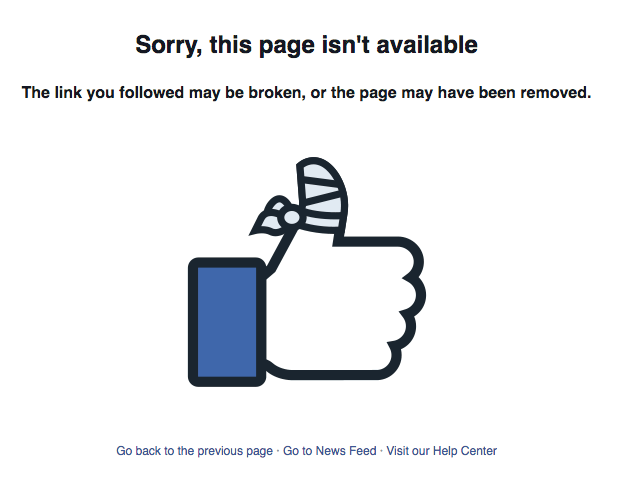
This post was updated on Tuesday when Facebook confirmed it took the page down for “IP violations” but didn’t cite go into specifics.
On Monday, Facebook took down the Facebook page for celebrity news and gossip site The Shade Room. The page, which was verified, has (had?) more than 4.4 million likes.

The Shade Room’s 25-year-old founder, Angie Nwandu — who made Forbes’ 30 Under 30 in Media list this year — told me on Monday that she doesn’t know why Facebook took the page down. She doesn’t believe the action was spurred by one particular post: “I monitor the page frequently and nothing was posted that violated any rules to my knowledge,” she wrote in a DM. “We have been targeted on FB and have been receiving numerous reports over things that don’t violate the terms. The amount of reports have been excessive.”
Facebook confirmed that it took the page down “for IP violations” but didn’t say what those violations were. The takedown of such a large and popular page could add fuel to concerns that publishers are giving Facebook too much power. (Note, though, that The Shade Room does have its own standalone website and isn’t an Instant Articles publisher. It used its Facebook page to link to its Instagram posts and stories on its website.)The Shade Room launched on Instagram before moving to Facebook, Twitter, and the web. Much of the site’s reporting is image-heavy — including screenshots from celebrities’ social media accounts, for instance. The Shade Room has 4.3 million Instagram followers (up from just half a million a year ago).
All in all, the company says in its advertising kit that its total digital following is made up of more than 7 million people, whom it refers to as “roommates.” Seventy-three percent of The Shade Room’s readers are black, 72 percent are between the ages of 18 and 34, and 78 percent are female. The site’s revenue approached $1 million in 2015.
“Nwandu might be the first media mogul of the distributed content age, and she’s a perfect avatar for this particular media moment: a young woman of color who knew nothing about the media business when she launched, still figuring it all out as she goes along,” BuzzFeed’s Doree Shafrir wrote in a 2015 profile. “[She] had no internships and she didn’t take any journalism classes in college — but she’s managed to monetize her deep understanding of social media and her contributions to online culture in a way that few young people of color have.”
With The Shade Room’s growing influence come an increasing number of complaints from celebrities who are angry about content that’s been made public, and the site has run into this problem before. Instagram (owned by Facebook) briefly shut down The Shade Room’s account last year. In that instance, BuzzFeed reported that the shutdown appeared to be related to an actress reporting the account to Instagram.
“We wrongly removed an account in this case and worked to fix the error as soon as we learned of it. We apologize for the mistake,” an Instagram spokesperson told BuzzFeed at the time, declining to comment further.
There are a number of reasons that Facebook might take down a page. One of those reasons is if a publisher posts something that Facebook deems a violation of intellectual property — posting a piece of content you don’t have the copyright to, for instance. Facebook often, though not always, gives users warning before removing content. “It’s our policy to disable the accounts of people who repeatedly infringe others’ intellectual property rights when appropriate,” the company says.
Nwandu temporarily made The Shade Room’s Instagram account private on Monday, telling me, “We wanted to protect our other accounts until we knew what was going on.” That account is now back up.